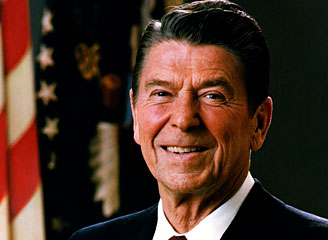WASHINGTON — With a landmark nuclear deal removing an “albatross” in relations, India says it is seeking new forms of cooperation with the United States — and sees climate change as a prime area.
Ambassador Ronen Sen, who is leaving his post after four and a half years in Washington, said that the world’s two largest democracies have finally turned the page on decades of mistrust.
The relationship “still has to reach a certain critical mass,” Sen said Wednesday. “But today I don’t see any major area where you have a difference in terms of long-term objectives — none.”
India reached an agreement with former U.S. president George W. Bush giving New Delhi access to civilian nuclear technology for the first time in decades despite its refusal to sign the Non-Proliferation Treaty.
“We got rid of this albatross across our necks. It’s freed us in a way. You can’t overestimate the importance of that,” Sen told a luncheon with business leaders.
Bush and Indian Prime Minister Manmohan Singh hailed the nuclear pact as a sign of an emerging alliance between their countries, which had uneasy ties during the Cold War.
But there were misgivings from some lawmakers from new President Barack Obama’s Democratic Party and several U.S. allies which said the pact set a bad example to nations such as Iran seen as pursuing nuclear weapons.
Sen said India was looking for areas to cooperate with the Obama administration and identified climate change as an area where “we have a vested interest in working as partners.”
“I would like to say that you will find us cooperative in this joint endeavor,” he said.
He said India and the United States shared concerns in climate policy, including reducing the environmental damage caused by rising temperatures and finding ways to reduce dependence on energy imports.
“This is one area where I think our interests converge more than any two countries that I can think of,” Sen said.
Obama has vowed to take a leadership role in drafting a new treaty on global warming, marking a drastic change in policy.
Bush was a sworn opponent of the Kyoto Protocol, arguing that it was unfair by forcing only rich nations to cut emissions blamed for global warming while making no demands of growing developing countries such as India and China.
While Sen did not go into detail on ways to cooperate, he stood by New Delhi’s position that poorer nations should have different obligations than rich countries bearing greater historic responsibility for global warming.
“We can’t tell an electorate when you are going into elections that when you have something like in excess of 300 million people without any access to electricity at all that you have to put a cap on this,” he said.
A December conference in Copenhagen is scheduled to approve a new treaty on fighting global warming for the period after 2012, when Kyoto’s obligations expire.
Frank Wisner, who was the U.S. ambassador to New Delhi in the 1990s, said India could take a greater role in trading carbon emissions, for example.
Climate change offers a chance for India to shake off its reputation as a naysayer in international agreements, Wisner said.
“Instead of waiting for others to come forward and then to criticize … India (can) be part of creating the solution,” Wisner said.
“That’s an issue that will affect the entire world’s — particularly Europe and this country’s — view of India,” he said.


